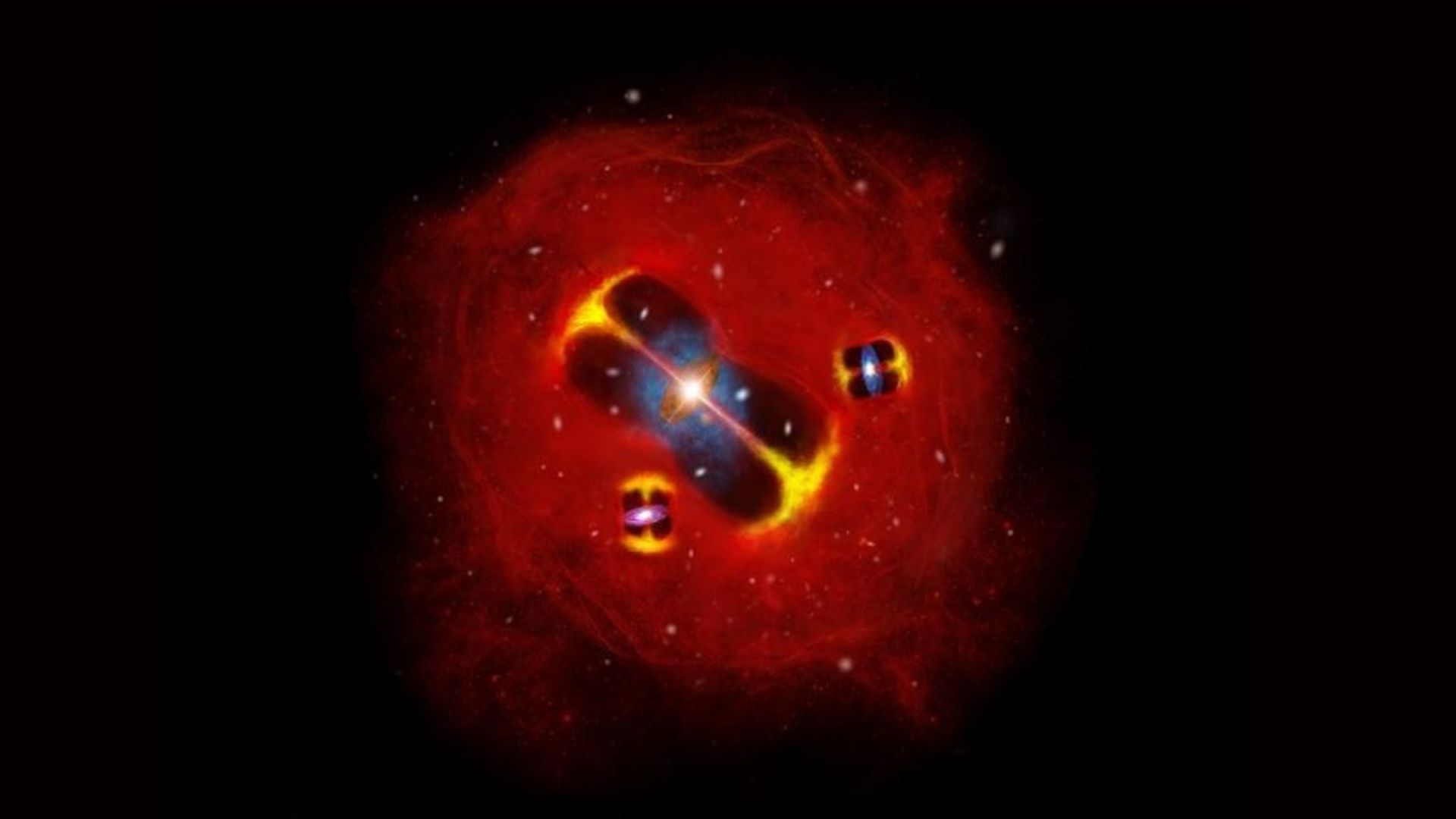Science News: Recent scientific discoveries and expert analysis
Read the latest science news and recent scientific discoveries on Live Science, where we've been reporting on groundbreaking advances for over 20 years. Our expert editors, writers and contributors are ready to guide you through today's most important breakthroughs in science with expert analysis, in-depth explainers and interesting articles, covering everything from space, technology, health, animals, planet Earth, and much more.

Explainers | Everything you need to know about the science news that matters.

Science Spotlight | Shining a light on new science transforming our world.
Latest news
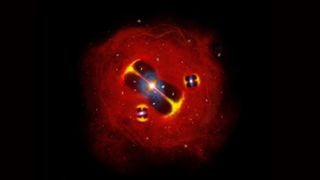
'How can all of this be happening?': Scientists spot massive group of ancient galaxies so hot they shouldn't exist
By Skyler Ware published
An inexplicably hot, fast-growing cluster of galaxies in the early universe has scientists questioning theories of galactic evolution.

Advanced alien civilizations could be communicating 'like fireflies' in plain sight, researchers suggest
By Harry Baker published
A new paper posits that advanced alien civilizations may communicate through subtle flashes, like fireflies do on Earth. The thought experiment suggests that we need to avoid human biases in our search for extraterrestrial life.
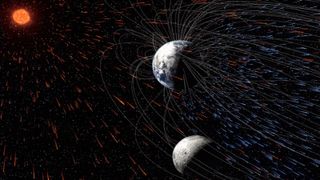
The moon has been secretly feasting on Earth's atmosphere for billions of years
By Harry Baker published
A new study reveals that tiny fragments of Earth's atmosphere are transported to and absorbed by the moon via gusts of solar wind and our planet's magnetic field, upending a 20-year-old theory based on NASA's Apollo lunar samples.
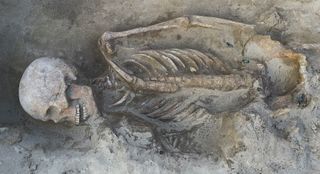
1,100-year-old burials of elite warriors and their ornate weapons discovered in Hungary
By Owen Jarus published
The 1,100-year-old burials of three elite warriors — two of whom were possibly father and son — have been discovered in Hungary.

US government overhauls the childhood vaccine schedule in unprecedented move
By Nicoletta Lanese published
Federal health officials are attempting to make the U.S. childhood vaccine schedule more like that of Denmark. Experts say the decision lacks scientific backing.

This 'marker' may be more predictive than cholesterol for heart disease
By Mary J. Scourboutakos published
C-reactive protein — a marker of inflammation — is as easily measured with blood work in a doctor’s office as cholesterol.

'Wolf Supermoon' gallery: See the first full moon of 2026 in pictures from across the world
By Sascha Pare published
The first full moon of 2026 shone brightly Saturday (Jan. 3). Known as the Wolf Moon, it appeared more luminous and larger than usual, rising together with Jupiter.

Even AI has trouble figuring out if text was written by AI — here's why
By Ambuj Tewari published
There are several methods for detecting whether a piece of text was written by AI. They all have limitations – and probably always will.
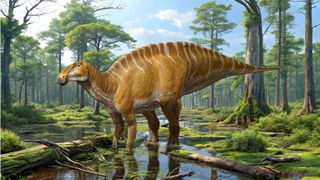
Giant 'cow of the Cretaceous' discovered almost 100 years ago identified as new duck-billed dinosaur
By Skyler Ware published
The dino lived during the Late Cretaceous alongside other hadrosaurids in present-day New Mexico.

Mysterious Voynich manuscript may be a cipher, a new study suggests
By Tom Metcalfe published
A newly invented cipher may shed light on how the mysterious Voynich manuscript was made in medieval times.
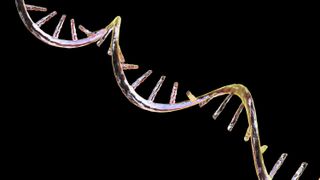
An experimental mRNA treatment counters immune cell aging in mice
By Nicoletta Lanese published
A trio of mRNA molecules could help guard against the harmful effects of aging on immune cells, a study in mice finds.

Will AI ever be more creative than humans?
By Drew Turney published
A new study argues that AI can never be more creative than humans, but many experts argue that AI's output will only ever be as good as its input — with the goalposts shifting as AI improves in the years to come.
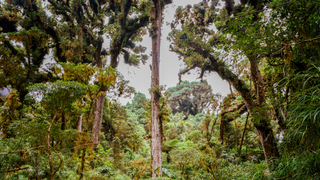
Trees in Panama's tropical forests are growing longer roots in the face of drought
By Sarah Wild published
A long-term experiment reveals tropical forests in Panama are able to adapt to droughts, but scientists warn this short-term "rescue strategy" is unlikely to save them from the impacts of climate change.
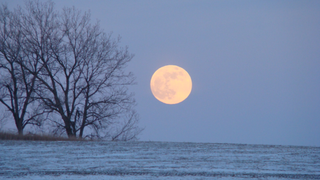
January 'Wolf Supermoon': How to see the full moon rise with Jupiter this weekend
By Jamie Carter published
The first full moon of 2026 and of winter in the Northern Hemisphere will shine brightly this week, just as Earth makes its annual closest approach to the sun.
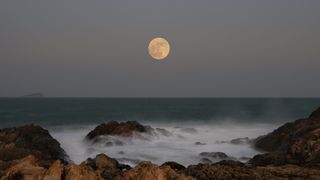
Full moons of 2026: When to see all 13 moons rise next year
By Jamie Carter published
When does the next full moon rise? Find out exactly when to see the full moons of 2026, including the full "Wolf Moon" supermoon in January.

From gene therapy breakthroughs to preventable disease outbreaks: The health trends that will shape 2026
By Nicoletta Lanese published
Opinion Live Science's health channel editor makes predictions about the medical breakthroughs and public health shifts to come in 2026.
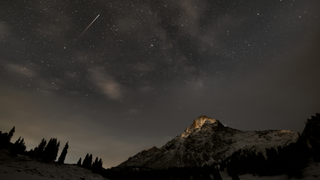
Quadrantid meteor shower peaks this week: How to see the first 'shooting' stars of the year
By Jamie Carter published
The Quadrantids will be harder to see than usual due to the bright full moon. Here's how to get the best views.

Centuries-old 'trophy head' from Peru reveals individual survived to adulthood despite disabling birth defect
By Aristos Georgiou published
A researcher has documented a cleft lip in an ancient mummified head from the Andes, a condition that may have been seen as a "blessing" rather than a disability.

Massive Myanmar earthquake was super smooth and efficient — and it holds lessons for the 'Big One'
By Stephanie Pappas published
The fault that ruptured in the March quake was simple and mature, which allowed the quake's energy to shoot right to the surface.

Enough fresh water is lost from continents each year to meet the needs of 280 million people. Here's how we can combat that.
By Sascha Pare published
Earth's continents are losing 4 Olympic swimming pools' worth of fresh water every second, with dire consequences for jobs, food security and water availability.
Get the world’s most fascinating discoveries delivered straight to your inbox.



